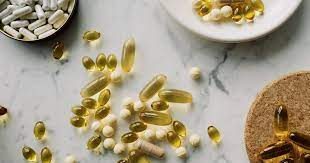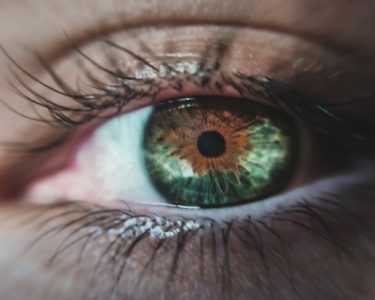In the United States, depression is a common and rapidly developing mental disorder. Depression affects nearly 40 million adults globally, believe it or not.
Medications licenced by the Food and Drug Administration, such as SSRIs and mood stabilisers, have made significant advances in the treatment of depression in modern medicine. Those with mental illnesses can also significantly improve their state of mind and quality of life by using psychological counselling, stress management, exercise, and other methods.
Antidepressant medicines may be beneficial in some circumstances, but they are ineffective in many others. Because of the potential for negative side effects, some people are reluctant to use antidepressants.
Natural Supplements and Herbs
Natural supplements are an often-overlooked way of therapy for persons suffering from depression or anxiety, despite the numerous treatment options accessible. For some people, natural vitamins and herbal therapies can be incredibly effective in the treatment of depression — without the annoying (and typical) antidepressant side effects.
Natural supplements can provide an unexpected “boost” for those whose depression is consistently overpowering them, even when conventional methods have failed. Of course, no single substance or therapy will ever be the “magic pill” or “fast fix” that so many depressed people seek. A comprehensive recovery is feasible, however, if the correct therapies are used in concert with one another.
We’ve compiled a list of 9 natural herbs and supplements that have demonstrated to be effective in the treatment of depression. Remember to always see your doctor before taking any natural supplements if you are depressed. Other prescriptions may interfere with each other, or side effects may appear, therefore it’s important to proceed with caution while eating anything.
St. John’s Wort
St. John’s Wort is one of the most researched and widely used natural supplements or herbs for the treatment of depression. St. John’s Wort was found to be more effective than a placebo in the treatment of depression in one study. However, many psychiatric drugs should not be taken with St. John’s Wort, and speaking with a doctor before eating this plant is essential.
GABA
GABA (or Gamma-Aminobutyric Acid) is a naturally occurring amino acid in the brain, believe it or not. GABA supplements act as a neurotransmitter, allowing brain cells to connect more effectively and resulting in favourable emotional outcomes. It can help people relax, reduce anxiety, improve their mood, and even sleep better. Low GABA levels can have a negative impact on mood, memory, and other cognitive functioning.
Omega-3 Fish Oils
Omega-3 fatty acids are vital in establishing normal brain function and are considered one of the greatest brain supplements available (at least by many). Omega-3 fatty acids can be obtained through eating fatty fish, such as salmon, and some nuts. Most people, however, do not consume as much Omega-3 fatty acids as they should.
Folic Acid / B Vitamins
B vitamins are one of the most often discussed vitamins that influence mood. Folic Acid is a type of vitamin B9 that is synthesised by humans. B vitamin deficiencies have been linked to sadness, forgetfulness, and exhaustion.
Saffron
Saffron is a centuries-old spice originating from a flower that was (and still is) farmed in the Middle East. It has a wide range of health benefits that go beyond mental and emotional well-being. However, because of its propensity to boost specific hormones and increase memory function, many people have speculated that it could help those who are depressed.
SAMe
SAMe (S-adenosyl-L-methionine) is another naturally occurring molecule found in the human brain and body. Although there aren’t many studies on SAMe’s antidepressant properties, it is known to both manufacture and alter the body’s hormones. SAMe is safe to eat, but it should be used with caution and expert guidance because it may interact negatively with antidepressants.
5-HTP
5-HTP is a well-studied vitamin for depression that works by raising Serotonin levels in the brain. Many mood, anxiety, and depressive illnesses are influenced by serotonin. There are numerous research that support 5-HTP and its antidepressant effects. Early study suggests that 5-HTP may be as effective as more traditional medicines in treating major depressive disorder.
Magnesium
Studies demonstrate that taking magnesium supplements orally for depression can be beneficial, as long as the magnesium supplement is completely soluble and accessible. After taking magnesium, many people report feeling more relaxed. Magnesium is a necessary mineral in our bodies, and the more of it we have, the better (or so it seems). Although magnesium can be found in a variety of foods, several environmental variables can deplete magnesium levels in our meals and, as a result, in our bodies.
Modern pesticides, for example, can remove poisons from the soil in which our crops grow. Similarly, during the filtration process, the majority of minerals are removed from our water. Of course, all of these advancements are beneficial to our modern safety and health, but they must be supplemented. Magnesium supplementation is frequently required.
High stress levels can also diminish the amount of magnesium in our body.
L-Theanine
L-theanine is an amino acid that can be found in both green and black teas. You may have heard that tea is good for your mind and body, but the science underlying its function – L-theanine – is what you need to know. This acid is known for safely increasing sleepiness levels and promoting complete relaxation.
Natural herbs and supplements can be a fantastic option for those who are wary of pharmaceuticals because antidepressant medicines are still considered “new” in the area of depression therapy approaches. For many people, natural alternatives to SSRIs and other antidepressants are the best therapy option.




